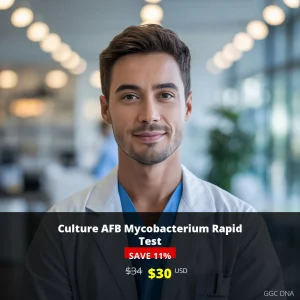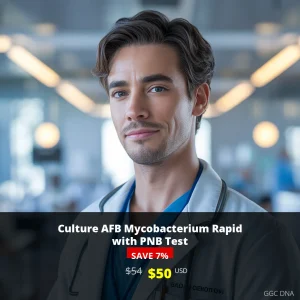Epstein-Barr Virus Antibody to Nuclear Antigen EBNA IgG Test
Comprehensive EBV Testing for Accurate Diagnosis
The Epstein-Barr Virus Antibody to Nuclear Antigen EBNA IgG Test is a sophisticated diagnostic examination that plays a vital role in identifying past infections with the Epstein-Barr virus (EBV). EBV is one of the most common human viruses, affecting over 90% of adults worldwide, and is primarily known for causing infectious mononucleosis (mono). This specific test measures IgG antibodies directed against the Epstein-Barr nuclear antigen, providing crucial information about your immune system’s response to previous EBV exposure.
What Does the EBNA IgG Test Measure?
This advanced immunoassay specifically detects and measures IgG class antibodies that target the Epstein-Barr nuclear antigen (EBNA). Unlike other EBV antibodies that appear during acute infection, EBNA IgG antibodies typically develop several weeks to months after the initial infection and persist for life. The presence of EBNA IgG antibodies indicates:
- Past infection with Epstein-Barr virus
- Established immunity to EBV
- Resolution of the acute infection phase
- Lifelong viral persistence in B lymphocytes
Who Should Consider EBNA IgG Testing?
This test is recommended for individuals experiencing symptoms that may be related to EBV infection or those requiring confirmation of past exposure. Consider testing if you experience:
- Unexplained chronic fatigue lasting more than 6 months
- Persistent fever of unknown origin
- Swollen lymph nodes without clear cause
- Sore throat that doesn’t resolve with standard treatment
- Suspected infectious mononucleosis symptoms
- Unexplained liver inflammation or hepatitis
- Immune system evaluation before transplantation
- Investigation of autoimmune conditions potentially linked to EBV
Key Benefits of EBNA IgG Testing
Understanding your EBV status through EBNA IgG testing provides numerous clinical advantages:
- Accurate Diagnosis: Differentiates between recent and past EBV infections
- Chronic Fatigue Evaluation: Helps identify EBV as a potential cause of persistent fatigue
- Immune Status Assessment: Determines if you have developed immunity to EBV
- Treatment Guidance: Informs appropriate management strategies for EBV-related conditions
- Peace of Mind: Provides clarity about your health status and potential infection history
- Comprehensive Analysis: When combined with other EBV antibody tests, offers complete EBV infection profile
Understanding Your Test Results
Interpreting EBNA IgG results requires professional medical expertise, but here’s general guidance:
- Positive Result: Indicates past EBV infection and established immunity. This is the expected finding in most adults and suggests your immune system has successfully responded to the virus.
- Negative Result: Suggests no past EBV infection or that antibodies haven’t developed yet (in very recent infections). May indicate susceptibility to primary EBV infection.
- Borderline/Equivocal: May require retesting or additional EBV antibody panels for clarification.
Your healthcare provider will interpret these results in the context of your symptoms, medical history, and other laboratory findings to provide comprehensive clinical assessment.
Test Pricing and Availability
| Test Name | Discount Price | Regular Price |
|---|---|---|
| Epstein-Barr Virus Antibody to Nuclear Antigen EBNA IgG Test | $326 USD | $450 USD |
Nationwide Testing Access
We have conveniently located branches across the United States, ensuring easy access to quality diagnostic services in all major metropolitan areas including New York, Los Angeles, Chicago, Houston, Phoenix, Philadelphia, San Antonio, San Diego, Dallas, San Jose, and many more cities nationwide.
Take Control of Your Health Today
Don’t let unexplained symptoms or concerns about EBV infection affect your quality of life. Our Epstein-Barr Virus EBNA IgG Test provides the accurate, reliable results you need for proper diagnosis and treatment planning. With our discounted pricing and nationwide availability, comprehensive EBV testing has never been more accessible.
Ready to schedule your test? Call or WhatsApp us today at +1(267) 388-9828 to book your appointment or get answers to any questions about EBV testing.
Our experienced healthcare professionals are ready to assist you with convenient scheduling, clear explanations of the testing process, and guidance on next steps based on your results. Take the first step toward understanding your EBV status and achieving better health outcomes.







